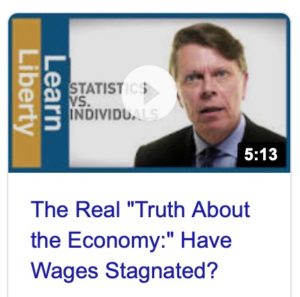The Campaign Against Income Inequality
Resolved: In the realm of economics, freedom ought to be valued above equity.
The Middle East topic may seem endlessly complicated to policy debaters, but the debate over freedom and equity turns out to be similarly complicated for Lincoln-Douglas debaters.
Advocates for greater equity in America focus on reducing income inequality. Income inequality is a highly-charged campaign issue with newspaper and evening news stories and comedy segments peaking in the months before national elections. The last peak was in the months before the 2012 Presidential election.
John Oliver’s July 13 Last Week Tonight segment on “Income Inequality” has over 3 million views. (That’s so unfair. My video on income inequality will have little chance for equal viewership.) Thanks to the Supreme Court’s Citizens United decision, corporate expenses for production and broadcast of shows and documentaries on partisan topic are protected from Federal Election Commission restrictions and regulations. Otherwise Time Warner/HBO comedy segments and documentaries that promote partisan positions reflecting a political party campaign agenda could be regulated as campaign expenditures.
There are a boatload of online videos discussing and debating income equality, including the engaging Robert Reich documentary, Inequality for All. A Bill Moyers show features discussion with Reich, and excerpts from the documentary and can be seen online free (watching free instead of buying the documentary is less likely to contribute to income inequality. Paul Krugman is said to be receiving $25,000 a month from the Income Inequality Institute. Hard to believe, but students can help avoid similar embarrassment for Robert Reich by not buying his income inequality video.)
At the beginning of the Bill Moyers show, Reich says democracy is corrupted by capitalism and “the first thing you’ve got to do is get the big money out of politics.” Next the PBS show lists over a minute of foundations and a few individuals that fund the show and the political ideas Bill Moyers and Robert Reich present. All the foundations are corporations and most or all have staffs, boards, and donors that are Democrats. They are welcome to express and fund their political and policy views. But how is this getting the big money out of politics? With their IRS approvals and 501(c)3 nonprofit status, the foundations can’t donate directly to political parties, but they can and do fund television shows and documentaries whose content is more political than balanced or scholarly.
Debaters should appreciate the online Intelligence Squared video featuring Robert Reich, Art Laffer and their debate partners on the topic: The Rich Are Taxed Enough. October 22, 2014 is the Intelligence Squared follow-up debate in New York City, Income Inequality Impairs the American Dream. (For LD debaters interested in attending, let me know. I’ve attended two Intelligence Squared debates and enjoyed both).
Don Boudreaux gives a response to Robert Reich’s income inequality claims in this LearnLiberty.org video.
Economies are dynamic and for the U.S. economy, many shifting realities challenge statisticians, making changes hard to measure and easy to misread. Don Boudreaux outlines some of these changes and notes how simple statistics can be misleading.
Consider for example the way immigration can increase income inequality statistics. For the ten million immigrants from Mexico since the 1970s, their incomes improved since arriving in the U.S.. But though most have wages far higher than the average in Mexico, most still have wages lower than average in the U.S., so they pulled average U.S. wages down. Even though immigrant workers add to the U.S. economy by producing goods and services, just moving from there to here makes income inequality look worse.
 Tyler Cowen’s recent New York Times column notes that income inequality is decreasing worldwide, thanks to increases in global trade, investment, and migration, combined with market reforms in countries around the world.
Tyler Cowen’s recent New York Times column notes that income inequality is decreasing worldwide, thanks to increases in global trade, investment, and migration, combined with market reforms in countries around the world.
There is much more in the income inequality debate. In the end, most people are interested in justice and are skeptical of economic realities that seem unfair. Do people with high incomes and corporations with high profits have special legal privileges that protect their high income and profits? Such legal privileges are or would be unfair and inequitable. Are there other reasons some achieve and earn so much more than others? Is there a way society can or should compensate?
One factor significantly increasing income inequality in America is homeschool speech and debate. Students spending hundreds of hours researching, thinking, practicing, and debating ideas, values, and policies, instead of watching television or playing video games, leads to wider income inequalities. So, take a break, relax, and help equalize future skills and incomes.
Apple Computer didn’t want 1984 to be like 1984, and we don’t want 2081 to be like 2081…
